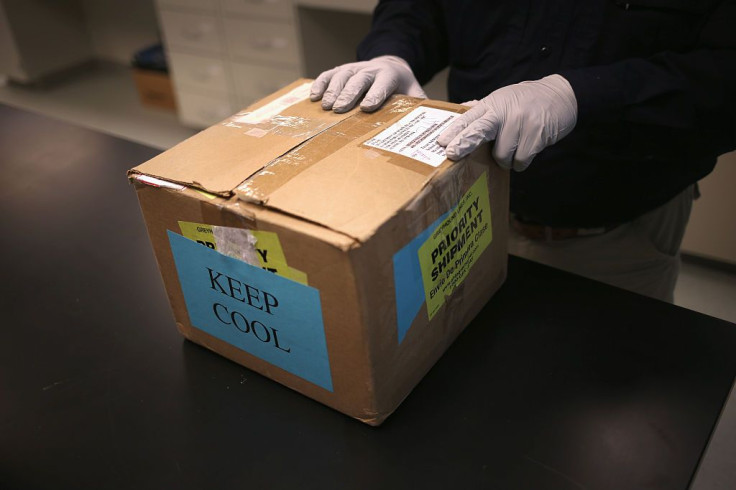Had Zika Virus? CDC Is Offering Men Who Have Been Infected $50 Gift Cards To Provide Sperm Donations

Hey, guys who have been infected with the Zika virus — want a $50 gift card you can use just about anywhere? Donate your sperm to the The Centers for Disease Control and Prevention (CDC).
For the past two months, the organization has been recruiting men to donate their semen samples in order to figure out how long Zika stays in the bodily fluid, CNN reported. So far about 40 men have signed up to make donations every other week for six months after they’ve recovered from the virus. The CDC is hoping to recruit at least 210 more, and yes, guys are given a gift card for every donation.
It’s convenient, too. CNN reported that a courier picks up the donations so that they can be delivered to the CDC’s lab in Fort Collins, Colo.
"I'm happy to say patients really have been quite receptive about volunteering their specimens," Dr. Paul Mead, the senior epidemiologist at the CDC who is running the study, told CNN. "They seem to understand the importance of the study."
Maybe you’re wondering why sperm — isn’t Zika contracted through a mosquito bite? Typically, the answer is yes. If humans are bitten by an infected mosquito from the Aedes genus family, the same mosquitoes that carry dengue, chikungunya, and yellow fever, they can develop symptoms. But there are a number of cases that have been contracted through sexual contact. In fact, the CDC reported 14 cases of sexually transmitted viruses, with experts bracing for a higher number of cases in the future.
The donation program has inspired a separate study in Puerto Rico, where Zika has been spreading more rapidly compared to other countries. Some believe the country’s crippling debt has hampered its response, especially when it comes to getting women contraceptives. Reuters reported that only a small fraction of methods to prevent Zika-related birth defects were expected to get to women in June. Long-term birth control isn’t on the table either (think of an intrauterine device) since many local doctors are not trained to implant them, according to Reuters.
CNN reported a fraction of Puerto Rican men and women have contracted the disease, but did not experience any symptoms; in which case, they’ll sample blood, saliva, and vaginal secretions on top of men’s sperm.
Zika has been spreading across South America at an alarming rate, as well as parts of the United States and western Europe. The World Health Organization (WHO) is even facing pressure to postpone next month’s Rio Olympics due to the fact this latest outbreak originated in Brazil. While the virus usually only amounts to a week-long mild fever, skin rash, and muscle aches and fatigue, it can pose a special threat to pregnant women, namely microcephaly — a condition that affects fetuses in utero so they’re born with severely small heads and develop neurological issues.
The CDC is regularly updating its Zika and sexual transmission page with the latest information, which at this point includes transparent insight into how little we still know. For now, condoms are considered the best way to reduce the chance of getting Zika from sex, as is the case for all sexually transmitted diseases. And for pregnant couples with male partners who live in or travel to areas affected by the virus, the advice to “use a condom every time they have sex or not have sex” is in bold. Couples trying to get pregnant should talk to their health care provider, the CDC said.



























